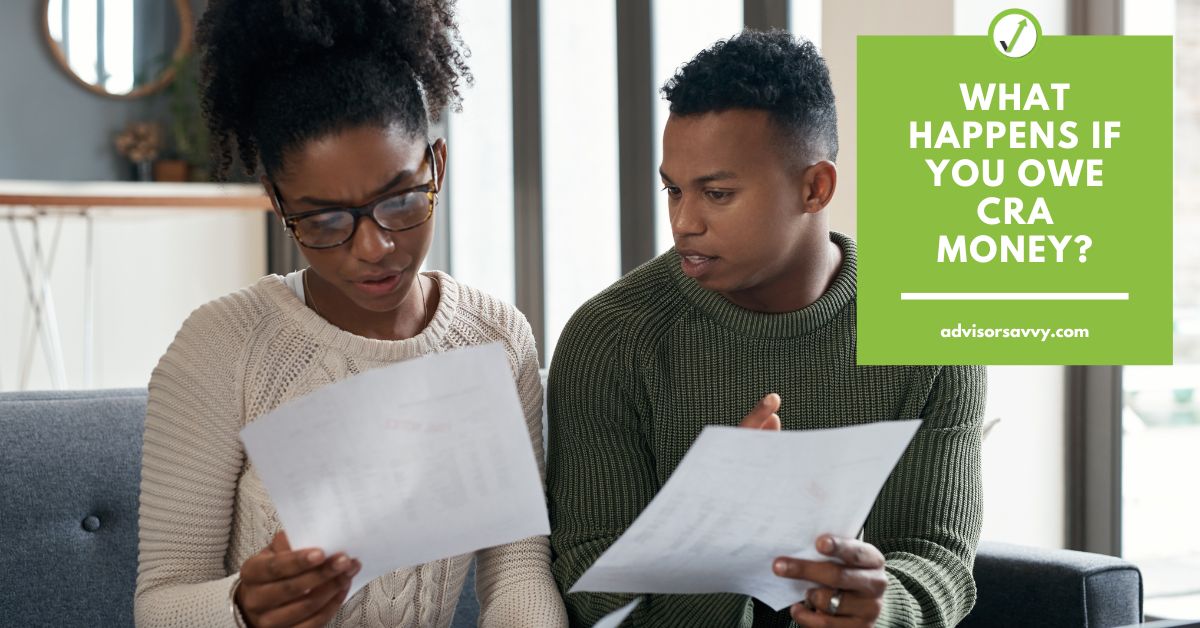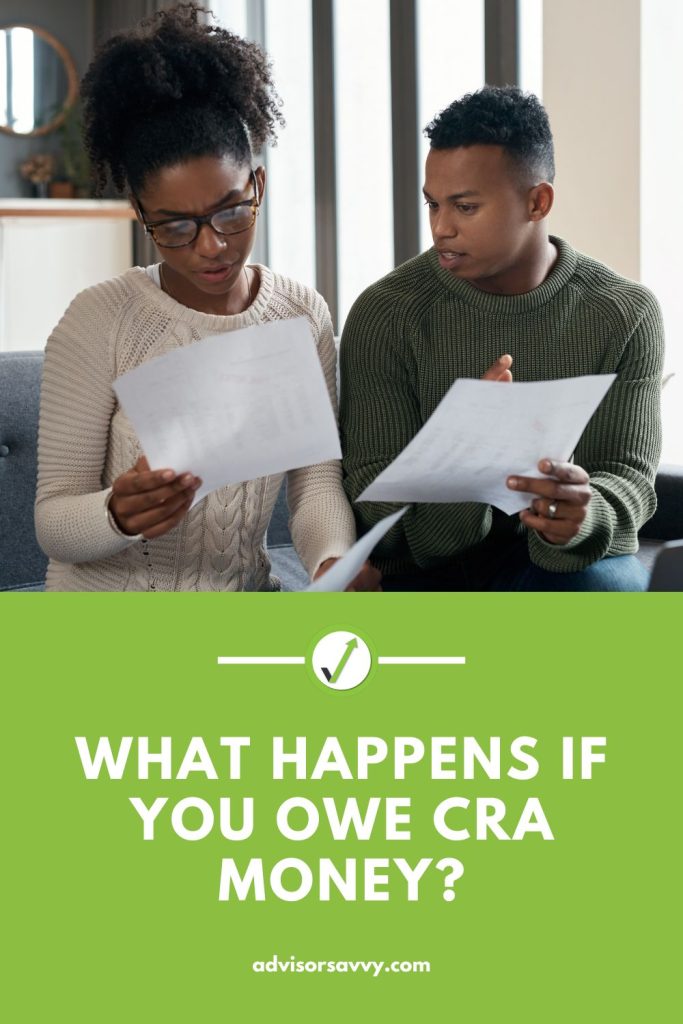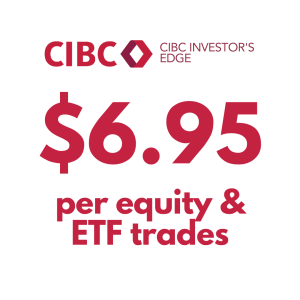
Tax debt can be overwhelming; however, it must be dealt with! Unlike other debts, tax debt comes with significantly more repercussions. The Canada Revenue Agency, or CRA for short, is responsible for collecting any owed taxes in Canada and they’re not a regular creditor. Rather, they’re a special kind of creditor that takes precedence over other debtors. To achieve their goal of collecting outstanding tax debt, they have potentially dramatic methods to collect owed tax debt. Finding out what happens if you owe CRA money may not be the most enjoyable content to read. But the sooner you deal with the situation, the sooner you can move on! Learn more about how to deal with outstanding tax debt below.

Table of contents
- Who is the Canada Revenue Agency (CRA)?
- Why might someone owe CRA money?
- Does the CRA tell you how much you owe?
- What happens if you owe the CRA money?
- How long can you owe the CRA money?
- How do I settle my debt with the CRA?
- What happens if you can’t pay back the CRA?
- Does CRA ever forgive tax debt?
- Settling Your CRA Debt
Who is the Canada Revenue Agency (CRA)?
The Canada Revenue Agency (CRA) is Canada’s administrative body for handling and collecting taxes. The CRA is responsible for the tax administration of the federal government and most provincial and territorial governments. They collect taxes, issue and enforce tax laws, and deliver tax-related benefit programs. As a result, if any Canadian (or foreigner) owes money for back taxes or any other reason, it is traced by and paid to the CRA. Many people wonder what happens if you owe CRA money. We will explore this question, possible reasons it could happen and what to do next.
Related Reading: Tax Credit vs Tax Deduction in Canada
CIBC Investor’s Line Offer
Up to $6.95 per online stock or ETF trade. Plus, there’s no minimum account balance.
Why might someone owe CRA money?
Individuals may owe the CRA money for multiple reasons. The most common reason is an error was made on your tax return, whether personal, corporate, sales tax, payroll tax and so on. Another possible reason is that too little money was deducted by your employer and you owe money during tax season when you don’t usually. This often happens in the case where you have multiple jobs or a side hustle. Your tax bracket is determined by your total earnings. If your employment situation changes in any way, you could owe more (sometimes less) in tax than you’re used to.
The CRA can audit your taxes for up to four years. However, they can go back further if they suspect fraud or misrepresentation. If they decide to do this, they may find an error in your taxes and determine that additional money is owed. Errors could occur for many reasons. You may have applied for a credit you were not eligible for, or you may have neglected to report certain types of income. Alternatively, if you can’t present financial records and receipts to support your tax return, they may deem that you owe more taxes. The CRA attempts to minimize any possible errors. They perform tax audits to recuperate any significant unpaid taxes.
Related Reading: Does Your Debt Die with You in Canada?
Employment Insurance, Canada Emergency Response Benefit and Other Related Programs
More recently, the CRA mistakenly gave out Employment Insurance (EI) and Canada Emergency Response Benefit (CERB). This was given out to applicants who did not qualify. The CRA spotted this error and began collecting these funds. Why you may need to repay is an excellent CRA resource on the matter. While pandemic relief was rushed out to Canadians as quickly as possible, it created some errors. Canadians could potentially owe money for any benefits given to them in error by the CRA or a government agency. It is necessary to ensure you qualify for any money received under a government program. If it is found you do not, you likely will have to return that money.
Other programs the CRA may be able to collect on behalf of include:
- Employment Insurance (EI)
- Canada Emergency Response Benefit (CERB)
- Old Age Security (OAS)
- Canada Pension Plan (CPP)
- Student Loans
- Other government agencies and programs.
Related Reading: How Long Does it Take to Receive a Tax Refund in Canada?
CIBC Investor’s Line Offer
Up to $6.95 per online stock or ETF trade. Plus, there’s no minimum account balance.
Does the CRA tell you how much you owe?
The CRA will let you know how much money you owe them after a reassessment of any returns or benefits claims. If you log into your CRA My Account this information can be found quickly online. It will be located on the Accounts and Payments tab at the top of the page. Once you click “Accounts and Payments”, you can then select “Account Balance and Statement of Account”. Any balance you may owe to the CRA will be here.
It is important to note this is only available if your tax filings are up to date. Otherwise, you will have to file all your past tax returns to get an accurate number of what you may owe. It is important to stay up to date with your tax filings because the CRA does not do them on your behalf.
Related Reading: Tax Planning Canada: Where do I start?
What happens if you owe the CRA money?
If you owe the CRA money, you will be responsible for paying it. The CRA will do what it can to recuperate the money, especially if you’re unresponsive or don’t pay. This includes keeping all or a portion of future CRA payments, tax refunds, or GST/HST credits. This can be done until the money is paid in full.
Paying any amount owed to the CRA in full is the best practice. However, this cannot always be accomplished due to challenging financial circumstances, and they understand this. To avoid escalated action like wage garnishment or liens and seizure of assets, contact the CRA. They will work with you to create appropriate payment plans.
How long can you owe the CRA money?
If you owe money to the CRA, this money will always be owed until it is paid. The CRA is subject to a collections limitation period (CLP). This requires them to stop collection action after a certain amount of time. It ranges from 6 to 10 years depending on what type of debt is being collected. It is important to understand this limitation can be restarted or extended as well. Here is all the information on the tax collections limitation period.
The CRA is not like your typical creditor. If you owe the CRA money, they have more power to collect. It is unlikely that you will be able to wait out the collections limitation period. And even if you can, you need to understand that this money would still be owed to the CRA. Plus, during the process of waiting out the CLP, you may endure other financial hurdles, like wage garnishments or future tax refunds and credits being applied against your debt.
It is important to ensure the CRA is paid any owed money as it could have significant financial and legal repercussions. And if you can’t repay the debts now, be sure to communicate with the CRA about your situation instead of avoiding it.

Match to your perfect advisor now.
Getting started is easy, fast and free.
Related Reading: How to Check Your Credit Score in Canada
How do I settle my debt with the CRA?
The CRA prefers debts to be settled in full. However, they understand this is not always possible. You can make monthly minimum payments on your statement account instead. There are steps to seek reduced monthly payments if you can prove certain financial or life hardships.
Payment plans can be made if you have tried to pay your debt in full. By seeking support from borrowing funds or by reducing your expenses. If you can prove this action has been taken, the CRA may enter a payment agreement with you.
It is important to always communicate with the CRA if your financial situation changes. They will be able to help you avoid repercussions for non-payment. Ultimately, they are not as intimidating as they seem and the more you communicate with them, the more favorable the outcome will be for everyone involved. Here are the methods to contact the CRA.
What happens if you can’t pay back the CRA?
If you do not pay the CRA or make appropriate arrangements, legal action can be taken. Before taking legal action, the CRA will make three attempts to give legal warnings by phone. Then send one written legal warning, typically by mail. Then, this can escalate to income garnishment or asset lien and seizures.
Other action that can be taken by the CRA to collect tax debt include:
- Garnish wages/income or amounts of money held for you. This is done through a demand on a third party. This could affect:
- Any income you regularly earn
- Money in banks, or trust
- Rent or lease payments
- Investment incomes
- Insurance claims
- Redirect government payments to debt payments. This could affect:
- Employment insurance (EI) benefits
- Canada Pension Plan (CPP) benefits
- Old Age Security (OAS) benefits
- Other tax credits or benefits
- Register a lien on an asset or seize and sell the asset to cover the debt, including:
- Car
- Boat
- Artwork
- Cottage
- Rental property
- Personal residence
The Canada Revenue Agency sometimes allows people to be put on payment plans to settle their tax debt. This is especially true if you suddenly owe a ton more tax than usual. Although, this requires that you communicate with them and arrange a mutually beneficial plan.
Related Reading: CPP vs OAS: What are the differences?
Does CRA ever forgive tax debt?
The CRA has a relief program to waive penalties and fees for repaying tax debt late. However, tax debt itself is rarely forgiven.
Relief for penalties and fees is only granted in exceptional circumstances if you apply and qualify. This relief would not waive any of the original amount owed. The criteria for this relief are very strict. The individual will have to prove significant financial hardship. This could be the result of personal illness, severe emotional or mental stress, and natural disasters that affected their ability to pay.
The only other instance where tax debt may be forgiven is if someone is going through the process of bankruptcy. However, after you’ve been discharged, you are required to any new tax debts that arise.

Match to your perfect advisor now.
Getting started is easy, fast and free.
Settling Your CRA Debt
It is important to prioritize the payment of any debt to the CRA. The CRA is not like other creditors, they have significant power for recovery and recourse that ordinary debtors do not possess. To avoid any heavy interest and penalties, make payments in full, where possible. If you need to work out a payment plan, make sure to contact the CRA and explain your situation. They will work with you to make sure you stay on track for repayment.
Still unsure of what happens if you owe CRA money? A financial advisor may be able to help you repay your tax debt and navigate a resolution with the tax agency. Fill out this quick questionnaire to be matched with one today!
Read More: Guide to Tax Credits: How to Get a Bigger Tax Refund

